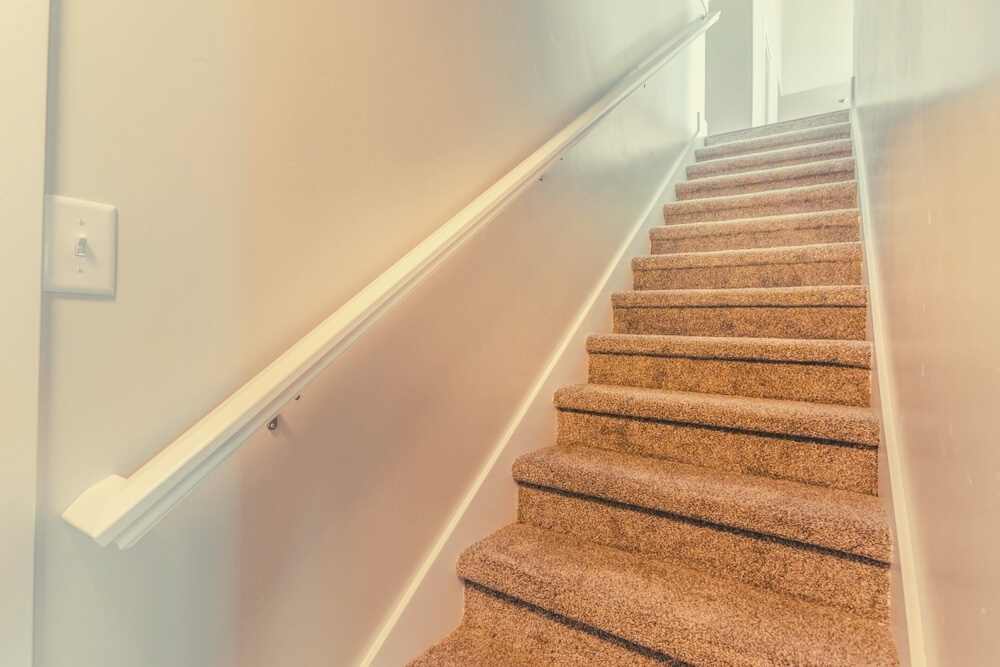Depending on the severity of a hurricane, authorities may permit residents to shelter at home if they do not wish to evacuate. If choosing to stay, you will need to know the safest places to shelter in a house. Not all parts your home will provide the same protection to you and other members of your household during a storm.
Today, we will be discussing the safest places in a house to shelter during a hurricane. It is important to keep in mind that these are general guidelines. Always follow the directions of local authorities when a storm approaches your area.
When Is It Okay to Shelter in Place?
Authorities may order an evacuation or permit sheltering in place depending on a hurricane’s severity. These instructions can change quickly if a storm’s conditions worsen when they touch down in your area.
If you are sheltering at home, continue to check in with local authorities through the internet, social media, television, or radio for the latest updates. Keep an evacuation preparedness kit for each member of your household in case you have to leave the area at a moment’s notice. According to FEMA, such a kit should include:
- One gallon of water per person, per day for three days
- Non-perishable food items
- Flashlight
- Battery-powered or hand crank-operated radio, NOAA weather radio preferred
- Additional batteries
- First-aid supplies
- 7-day supply of any prescription medication or necessary medical equipment
- Multi-purpose tool (i.e., a Swiss Army knife)
- Sanitation and personal hygiene supplies
- Copies of important personal documents
- Cell phone with a charger
- Emergency contact info
- Extra cash in case ATMs are unavailable
- Spare fuel for generators or vehicles
What If You Need to Evacuate?
As soon as you hear about the possibility of a hurricane or receive an official evacuation order, it’s crucial to monitor the situation. Keep yourself updated on the storm’s progress by following local news and official weather alerts. Pay attention to evacuation orders issued by authorities and have a plan in place for where you will go if you need to leave your home.
Determine the point where everyone will evacuate, such as your front door. Place your emergency evacuation kits near this exit and communicate to everyone that this is where you should meet before leaving.
If you have not already been ordered to turn off your utilities before sheltering in place, check to see if an order has been issued to do so. Turn off your electricity and gas to prevent any risk of fire in the aftermath of the hurricane.
From here, head to a local shelter through an approved means of travel. Do not attempt to make this trip on foot. Either drive your vehicle, conditions permitting, or use a transportation service provided by local authorities.
Once you have reached your evacuation destination, remain there until authorities have permitted you to return home.
Please note: this is just general information. Depending on the specific hurricane, conditions may change and authorities may issue other information and recommendations. Always follow instructions from your local government to ensure that you remain protected from severe and dangerous weather.
Stay on the First Floor
If you can, stay on the first floor of your home. This is the safest place to be during a hurricane. The lower level of your house is grounded in its foundation to withstand high winds and will not be as vulnerable to large falling debris, but it also has a far lower risk of flooding compared to a basement.
Why You Should Avoid Upper Floors:

During a hurricane, it is recommended that anyone sheltering in place avoid staying on the upper floors of their home for several reasons. Wind speeds tend to increase with height, making higher floors more susceptible to the damaging effects of strong gusts.
These intense winds can cause structural damage to roofs, walls, and windows, leading to increased risk for those on upper levels. If the wind current is strong enough, it may detach the roof from the rest of the home, which can further expose you to the harsh conditions outside.
Another reason to stay on the lower level is that higher floors are more vulnerable to large falling debris. Heavy objects, such as trees, utility poles, and parts of neighboring structures, can cause significant damage when they fall onto a home. Staying on the first floor reduces the likelihood of being directly impacted by such debris.
Additionally, if the structural integrity of your home is compromised during a hurricane, the upper floors may become unstable and potentially collapse. Conversely, the first floor is grounded in the foundation, providing better overall stability and safety.
Lastly, if you need to evacuate your home quickly due to flooding or other emergencies, being on the first floor can make it easier and faster to exit the building. Navigating stairs during a storm can be dangerous and time-consuming, especially if the stairways are wet, damaged, or obstructed by debris. Staying on the lower level allows for quicker access to your home’s exit points, increasing your chances of safely evacuating if necessary.
Avoid Rooms with Skylights or Windows
Skylights and windows made with traditional glass can shatter during a hurricane, leaving the rooms they are located in exposed to the elements. When possible, avoid these rooms altogether. If there are no windowless rooms in your home, select one with the smallest and fewest windows that could be easily covered or leave minimal openings if they break.
Select a Windowless Room Instead
On the first floor, select a windowless room to shelter in. This will protect you from both wind and flying debris. Some common examples of windowless spaces you might have in your home could include:
Closet
Almost all closets are built without windows. Before sheltering in a closet, be sure to remove any objects from any high shelves that could potentially fall and injure someone inside.
Bathroom
Some interior bathrooms and half-baths in homes are built without windows. However, in some circumstances, floodwaters may come up through pipes or drains in the bathroom. If this happens, leave the room immediately.
Interior Hallway
Interior hallways provide a spacious area for one or multiple members of a household. Try to remain near the center of the hallway and be sure to close any doors that branch off of it.
Stairwell
Interior stairwells are often built into the studs of the home and can provide sturdy protection in the event of a hurricane. If you decide to shelter in a stairwell, remain as close to the bottom step as possible.
Pantry or Storage Room
A windowless pantry or storage room can also be a safe place to shelter during a hurricane. Clear the area of any items that could become dangerous projectiles, and make sure there’s enough space for everyone to be comfortable. Have a battery-powered light source available in case of a power outage.
Protect Your Home Against Hurricane Forces with Impact Windows
Though rooms with windows may appear more vulnerable to hurricanes, outfitting them with impact-resistant windows can increase their defenses against severe storm forces.
Unlike traditional glass windows, impact windows are designed to withstand high-strength winds and flying debris. Their more robust construction provides greater integrity and prevents shattering and exposing your interior to the elements.
Hurricane windows are available in a wide range of popular styles and their frames can be custom-sized to the existing openings in your home. Once installed, they remain a permanent fixture and require no additional setup, teardown, or storage like metal shutters or plywood boards.

Get Paradise Platinum Hurricane Impact Windows for Your Home
At Paradise Exteriors, we are the proud exclusive installers of USA-made Paradise Platinum hurricane impact windows. These windows are the only ones on the market that are both Energy Star-awarded and endorsed by the National Crime Prevention Council.
To learn more about installing Paradise Platinum windows in your Florida home, as well as information about financing and warranties, contact us today or request a free estimate.



